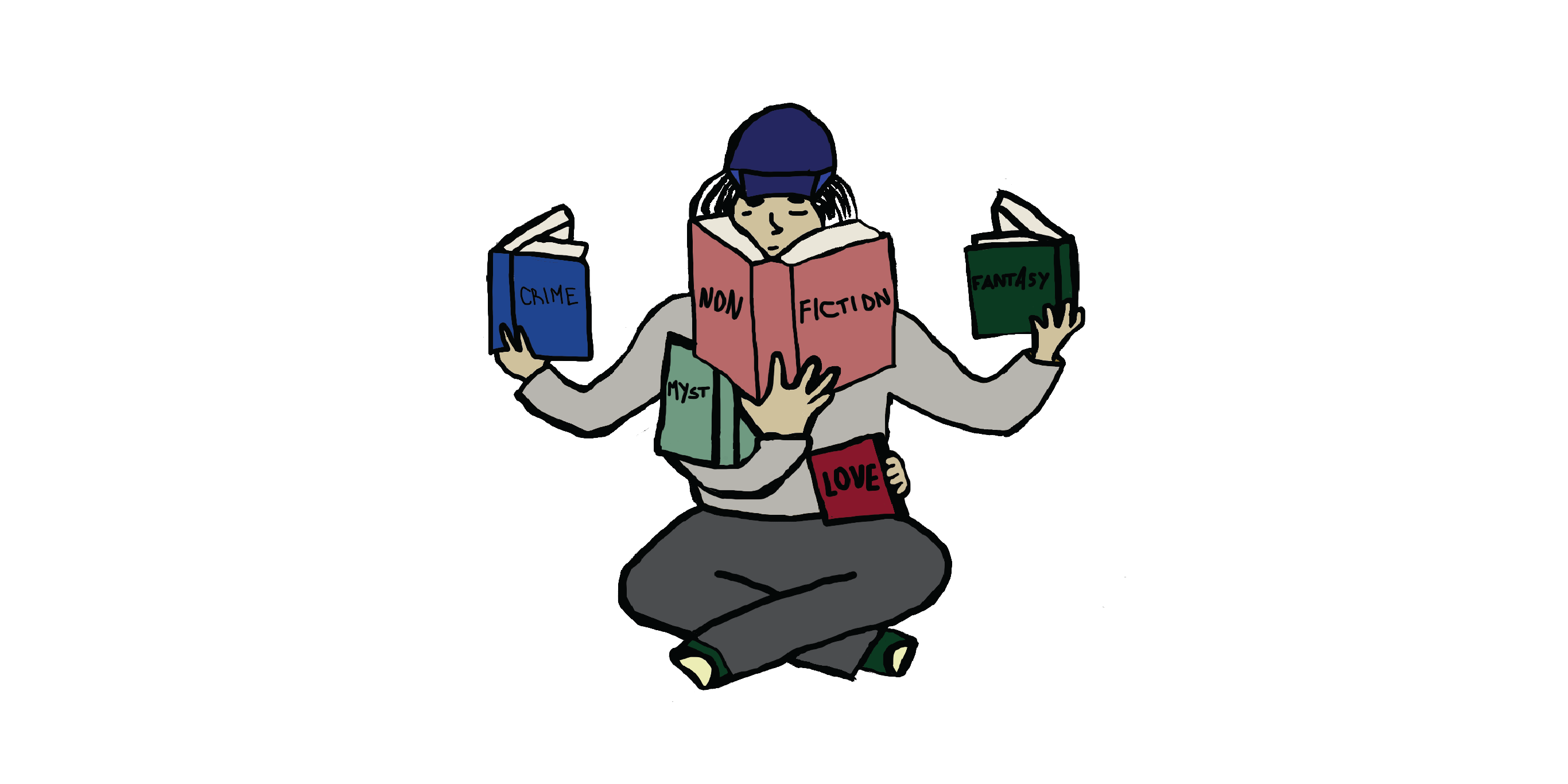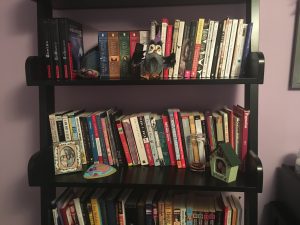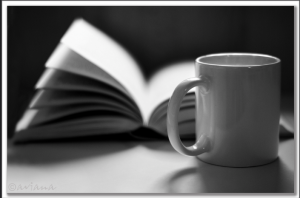“I want to buy you something you’ll actually keep … Don’t you want something more appropriate for your age?” Those are just two of the things my great-aunt told me two years ago in Blackwell’s bookstore in London. She didn’t mean to be rude or hurtful, she was just expressing her disapproval of my reading choices. But standing in the middle of an amazing foreign bookstore clutching the U.K. edition of Tower of Dawn, a fantasy book I had been waiting months to read, I wanted to cry. I think I did a little.
I am and have always been a self-proclaimed book nerd. It is one of the most consistent aspects of my personality and something I am very proud of. I read the Warriors series in elementary school, followed by an obsession with Percy Jackson that sparked a long-time love for mythology, and, of course, I devoured Harry Potter. Barnes & Noble was my favorite place in the world. I made friends in middle school based on a shared love for these book series. And it was totally normal; everyone was obsessed with reading when I was in middle school. But then we grew up and something changed.
Somewhere in our lives, reading changes from a fun hobby to an academic activity that becomes hard to enjoy. A large factor in this shift is the extreme reading requirements in most school curriculums that focus on a very limited selection of “prestigious” works such as The Odyssey and The Scarlett Letter. While finding the time to read for leisure during the school year can be challenging, I find it troubling how this attitude toward reading permeates the rest of our lives. Many syllabi make it seem like the only books worth reading are award winners and canonical works. But, these books can seem daunting to someone looking for entertainment and only represent a fraction of the books in the world.
Highly complex, academic books have a lot to offer; they can be extremely informative and often discuss important topics, including historical events or philosophical debates. Personally, I find it nice to keep changing the genre or difficulty of what I read. It helps me enjoy reading as a pastime without burning out. After a dense and tragic World War II-themed historical fiction like Motherland by Maria Hummel, I might turn to a lighter young-adult fantasy novel like Carry On by Rainbow Rowell. These two books are completely different, and some people would view one as inherently better than the other for its literary complexity. I would argue it’s impossible to compare them. Every book has something different to offer readers, and trying to rank them creates the attitude that certain books are “lesser” than others, which can be extremely discouraging.
There are amazing works of literature in every category; nonfiction is not superior to fantasy, and “adult” books aren’t always better than their “young-adult” and “middle-grade” equivalents. The books that win awards receive recognition because they did specific things very well, but this doesn’t necessarily make them superior to others. “We want awards to be clear markers of excellence, but if anything they repeatedly demonstrate that there are no absolute standards for judging aesthetic matters,” Daniel Mendelsohn wrote in The New York Times on the value of literary awards. It is impossible to accurately rank every book in the world or to select the 10 recent releases that are “significant” or “important.” People enjoy different things; what I consider a favorite might not appeal to the person next to me, and there’s nothing wrong with that. A wider acceptance of different types of books and styles of storytelling would allow everyone to find something to enjoy.
This is a shift that needs to happen not only in society, but within individuals. I have always been the type to read what I found interesting regardless of the current trend, though I admit every now and then other people’s criticism of my reading style can take its toll. As a student at a prestigious university, I feel like the only books I’m supposed to read are the top 10 New York Times bestsellers or literary classics that I’d find on an English major’s syllabus. There’s nothing wrong with these books; they obtain their prestige for a reason, but they shouldn’t be viewed as the only “acceptable” books to read. People need to let go of the pressure to read only the most prestigious books in order to appear highly educated or successful and allow themselves a chance to open up and discover a new passion.
When I started to expand my reading tastes, I found some truly powerful messages in the most unlikely places. The best representation of anxiety I have encountered was in Eliza and Her Monsters, a young adult fiction story about a comic book artist. Vicious, a science fiction novel, made me reconsider my perception of good and evil. I learned about the Elizabethan era from Shadow of Night, a high fantasy with vampires, witches, and demons. Sometimes these books that are perceived as “lesser” are in fact more inclusive and forward-thinking than the classics. Recently, the young-adult category has seen a surge in “own-voices” books, books written by authors who come from the same marginalized communities as their main characters. The Hate You Give, Children of Blood and Bone, and With the Fire on High are recent young-adult publications that have received extensive praise online for their emphasis on diverse narratives and compelling storylines.
There is more than one way to learn about the world, and it’s important to recognize all types of books as equally valuable. Not only would this attitude shift encourage more people to expand their reading tastes, it would encourage aspiring authors and writers to take more creative liberties with their work. Literature cannot progress if writers continuously copy award-winning styles in order to be the most popular; a more open environment would allow for creative innovation that would move society forward. The world of literature is too expansive to be accurately defined by a few lists and awards. We need to create a more inclusive attitude toward reading to make way for the next big thing.
It doesn’t matter what someone reads as long as they enjoy the process and learn something about themselves or the world. I will continue to read the types of books I love because they make me happy and are an uplifting distraction from everyday life, and not just because someone else said I should.
Image Credit: Cassi Sullivan





